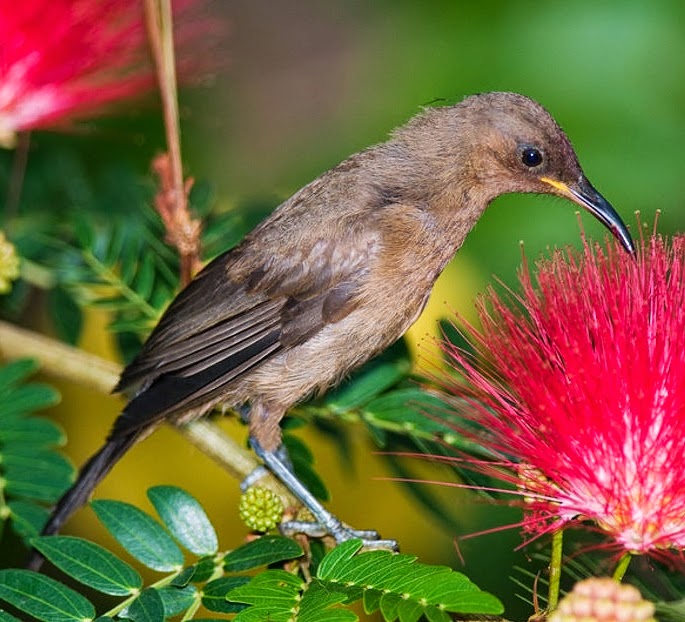 |
| (Photo from Australia’s National Landscapes) |
Common name:
dusky myzomela (en); melífago-sombrio (pt); myzomèle ombré (fr); mielero sombrío (es); rußhonigfresser (de)
Taxonomy:
Order Passeriformes
Family Meliphagidae
Range:
This species is found along the coasts of Queensland and the Northern territory, in Australia, and also along the southern coast of New Guinea and in the nearby islands of Aroe, North Maluku and Biak.
Size:
These birds are 12-15 cm long and weigh 12 g.
Habitat:
the dusky myzomela is mostly found in moist tropical forests, also using moist scrublands, mangroves, dry savannas, plantations and urban areas. They are present from sea level up to an altitude of 1.200 m.
Diet:
They feed mainly on nectar.
Breeding:
Dusky myzomelas can breed all year round, but with a peak in March-September. The nest is a small, neat cup made of fine bark, spider webs, and leaves, usually placed on a well-hidden branch high over water. The female lays 2 white eggs with fine reddish spots which are incubated 12-13 days. The chicks are fed largely on nectar and fledge 13-15 days after hatching.
Conservation:
IUCN status – LC (Least Concern)
This species has a large breeding range and is described as moderately common. The population is suspected to be stable in the absence of evidence for any declines or substantial threats.







